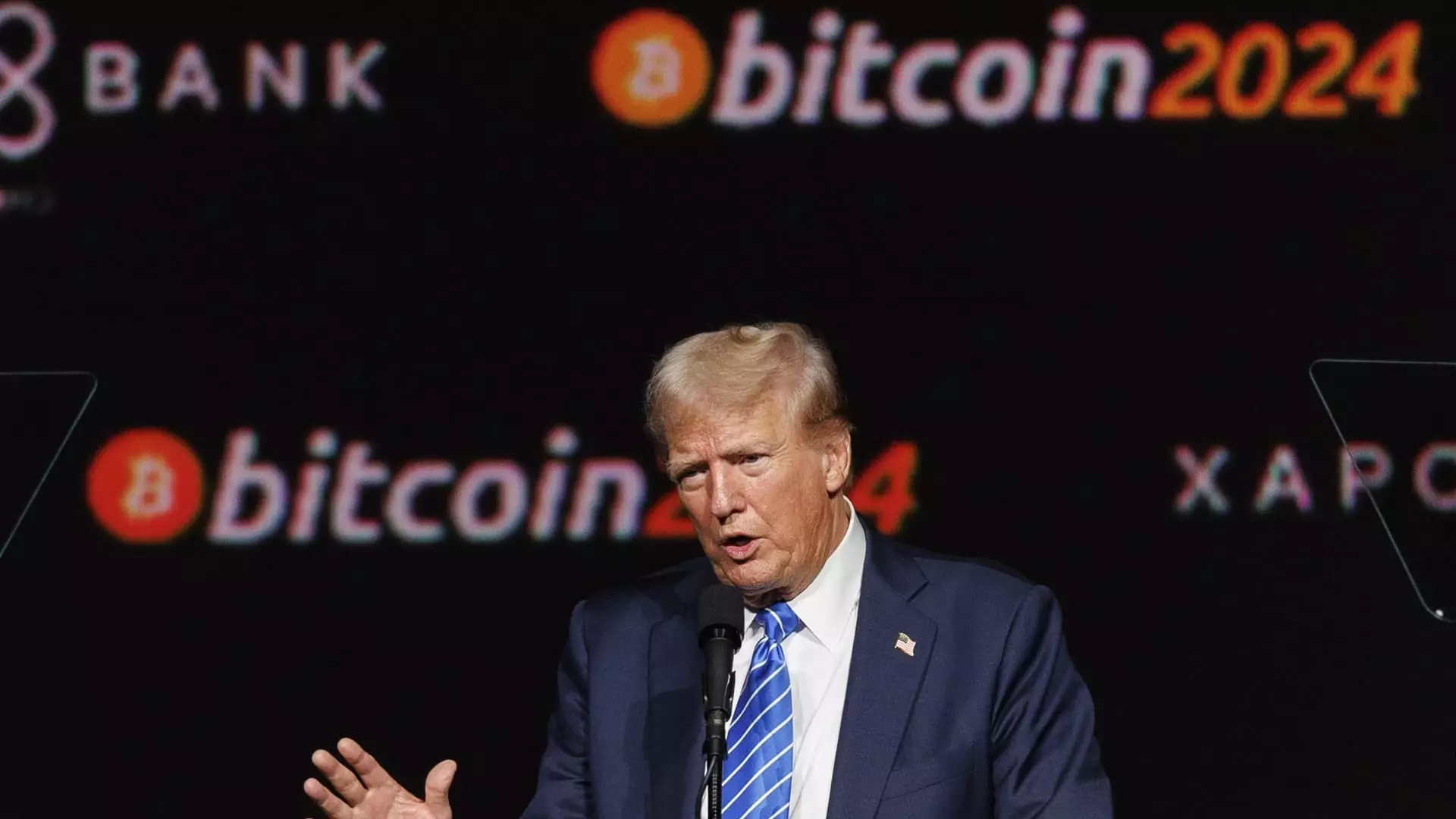As the U.S. presidential election approaches, speculation on its potential impact on global cryptocurrency markets rises. Yet, across the world, and particularly in Singapore—an emerging hub for crypto innovation—industry insiders argue that the political climate in the United States may not significantly sway the trajectory of the market. This perspective reflects a broader belief in the resilience and momentum of decentralized finance, which seems to transcend the confines of partisan politics.
Former President Donald Trump has long been associated with pro-crypto sentiment, appealing to enthusiasts with promises to maintain federal bitcoin holdings and positioning the U.S. as a “crypto capital.” Observers like Charles Hoskinson, co-founder of Ethereum, emphasize Trump’s appeal but assert that regardless of the political winds blowing from the White House, the decentralized nature of cryptocurrency is more pivotal than any individual administration. Conversely, Vice President Kamala Harris’s narrative is yet to fully unfold in terms of cryptocurrency policies, but some analysts, including Anthony Scaramucci, suggest continuity might prevail regardless of who ultimately wins.
The potential predictability of Harris’s approach to crypto regulation, according to supporters, can be a reassuring factor amidst political uncertainty. Nevertheless, there remains a question mark surrounding Trump’s unpredictable political maneuvers. His family’s recent venture into crypto with World Liberty Financial raises further curiosity about how committed he truly is to fostering the industry.
Experts like Hoskinson stress a critical point: even if the U.S. were to adopt a more crypto-conducive environment, global momentum towards decentralized finance has already been established. Regulations are emerging globally, from Singapore to the European Union, showcasing an international shift toward recognizing and embracing cryptocurrency as a legitimate asset class. This shift illustrates the notion that innovation may flourish beyond any nation’s political contributions. The unique aspect of technology like cryptocurrency is its ability to develop outside traditional infrastructures, often leading to evolutions that resist legislative shackles.
Despite the heated political atmosphere in the U.S., there appears to be an emerging consensus in Congress regarding the importance of supporting the cryptocurrency sector. As Jeremy Allaire from Circle noted, the support spans across political lines, indicating a recognition of the necessity for regulatory frameworks that foster industry growth and protect consumer interests. This bipartisan attention underscores a pivotal shift; cryptocurrencies are being recognized not merely as speculative assets but as vital components of an evolving digital economy.
Furthermore, the financial contributions made by crypto-related entities and individuals to political campaigns—exceeding $190 million—suggest that stakeholders are keenly aware of the political landscape and its implications for the industry’s future. The financial commitments also reveal a tactical approach where investments in favored candidates serve as hedges against potential regulatory upheaval, fostering a more balanced view compared to previous election cycles.
Market veterans like Arthur Hayes counter the idea that U.S. political dynamics significantly impact global cryptocurrency markets. His assertion that Bitcoin transitioned from inception to a multi-trillion-dollar asset with minimal regulation underscores the argument that innovation will persist irrespective of regulatory environments. The essence of Bitcoin and other cryptocurrencies is rooted in their independence from centralized control, which inherently protects these assets from fleeting political strife.
In a world increasingly focused on digital finance, it’s clear that the cryptocurrency sector is evolving into a staple of global economic discourse. Whether Trump or Harris prevails in the upcoming U.S. presidential election, their policies may shape domestic regulations, but they are unlikely to derail the global decentralized movement gaining ground. The collective drive towards a future where digital assets play a substantial role emphasizes resilience and adaptability inherent to cryptocurrency. As authorities worldwide navigate the intricacies of regulation, the conversation continues to focus on creating frameworks that foster innovation while safeguarding the rights of consumers—a promising landscape for cryptocurrency enthusiasts and investors alike.


Leave a Reply